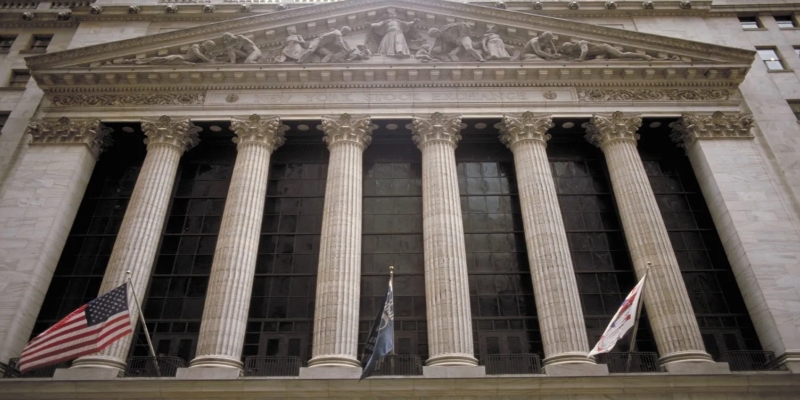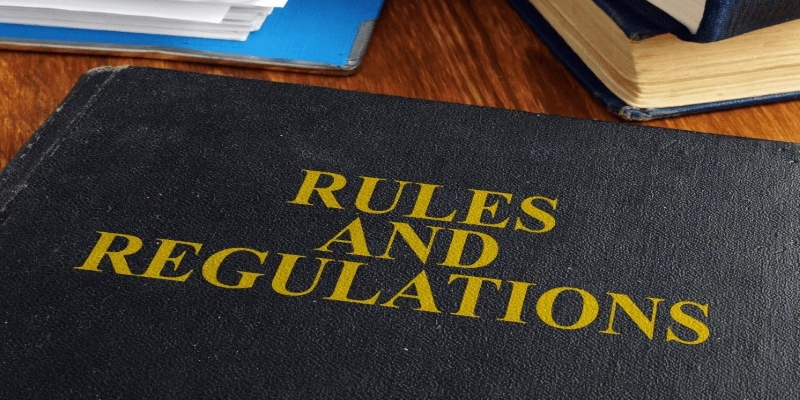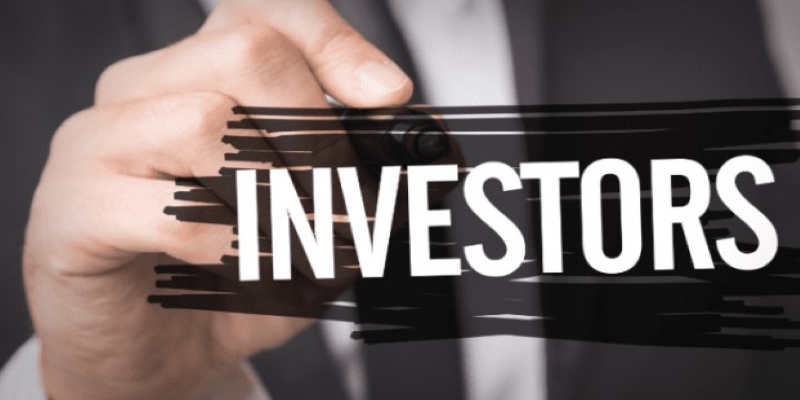The "Big Board" is one of those iconic terms that seem to have transcended into the financial vocabulary of the world. The Big Board is a nickname for the New York Stock Exchange (NYSE), which is not only a physical trading floor in New York City but also the beating heart of the Americanand, to some extent, globalfinancial markets. Throughout the years, it has symbolized economic prosperity, acted as the hub of capital exchange, and a place for listing companies to the public, which allows millions of investors to share in the financial growth of companies.

The Big Board's rules and regulations upon which the integrity of the Board depends are fundamental to its operations. In this article, we use the Big Board to unpack what it really represents, what the rules and regulations are behind it, and why these rules are important to ensure market integrity. The Big Board eventually becomes something you should have a better understanding of by the end and its lasting effect on the financial markets.
Understanding the Big Board: Meaning and Historical Significance
The New York Stock Exchange (NYSE) is the largest stock exchange by market capitalization and is usually referred to by the term "Big Board." This is affectionately a term used by traders, brokers, and market specialists, referencing the central spot in which the NYSE fills in fuzzy financial circles. The NYSE came into being in 1792 as a provision for a trading method of securities in a structured and regulated venuea revolutionary idea at the time. Its creation set stock trading on a formalized footing in the United States, and Wall Street became the world's financial capital as it is today.
Surviving wars and financial crises and adapting and growing through the centuries, the Big Board has also seen thousands of technological changes. Although the NYSE is now electronic and the opening and closing bells have become symbols of market activity, the NYSE trading floor continues to stay the same. The. Big Board is more than just a marketplace; it is an economic indicator, an indicator of financial health and investor sentiment. Companies that list on the NYSE draw retail stakes and institutional investors who would otherwise prefer to be in public markets; in short, they have a high level of visibility and credibility.
Rules and Regulations: Structure for Fair Trading

The rules and regulations governing the Big Board are essential for maintaining a structured, fair, and transparent market. Without these rules, the exchange would be susceptible to volatility, unfair practices, and potential manipulation. These regulations are enforced by various authorities, including the NYSE itself, the Securities and Exchange Commission (SEC), and the Financial Industry Regulatory Authority (FINRA).
Listing Requirements
For a company to be listed on the Big Board, it must meet specific standards related to market capitalization, financial health, and corporate governance. For example, companies are typically required to have a minimum market value, a certain number of publicly traded shares, and adherence to corporate governance standards. These requirements are put in place to ensure that companies on the Big Board are well-established, financially stable, and credible. By maintaining strict listing criteria, the NYSE protects investors from companies that may pose higher risks or lack transparency.
Trading Rules
Trading on the Big Board is not a free-for-all; it follows specific rules designed to keep transactions orderly and fair. The NYSE operates on an auction-based system, where prices are determined by supply and demand. Licensed professionals, known as Designated Market Makers (DMMs), are present on the trading floor to facilitate trading and provide liquidity. These DMMs play a crucial role in stabilizing prices and ensuring that there are willing buyers and sellers, which minimizes price volatility.
In addition to DMMs, electronic trading has taken center stage, enabling faster, more efficient transactions. However, these electronic trades are still subject to regulatory scrutiny. Various safeguards, such as circuit breakers, are implemented to halt trading temporarily in cases of extreme price drops, helping to maintain stability during volatile periods.
Market Surveillance and Fraud Prevention
The Big Board has a comprehensive market surveillance system in place to detect unusual trading activity, insider trading, and other potential violations. The SEC and FINRA work alongside the NYSE to monitor trades, ensuring compliance with regulations and maintaining market integrity. Insider trading, for example, is strictly prohibited, and anyone caught using confidential information for financial gain faces heavy penalties. This vigilance helps to prevent manipulation and fraudulent activities, ensuring that all market participants operate on a level playing field.
In addition to fraud prevention, the Big Board has strict regulations on market transparency. Companies listed on the NYSE are required to regularly disclose financial information, such as quarterly earnings reports, major corporate changes, and insider transactions. This information is critical for investors to make informed decisions, further promoting a fair trading environment.
The Impact of Big Board Rules on Market Participants
The rules and regulations governing the Big Board impact not only the companies listed on the NYSE but also the individual and institutional investors who participate in the market. These guidelines create a sense of trust and reliability, which is crucial for attracting investors. When investors are confident that they are trading in a fair and transparent environment, they are more likely to participate actively in the market.
For Companies
Being listed on the Big Board is a mark of prestige, signaling to investors that the company meets high standards of financial health and corporate governance. However, it also comes with the responsibility of adhering to strict reporting and governance standards. For example, listed companies must regularly report their financial performance, comply with audit requirements, and adhere to the NYSEs corporate governance principles. These requirements help maintain investor confidence and uphold the NYSE's reputation as a reliable marketplace.
For Investors

For investors, the Big Boards regulations provide a sense of security, reducing the risk of unethical practices. For instance, the transparency requirements mean investors have access to up-to-date financial information, allowing them to make informed decisions. Moreover, the existence of trading rules, market surveillance, and fraud prevention measures protects investors from potential market manipulation and insider trading, which can harm investment outcomes.
For Brokers and Traders
Brokers and traders operating on the Big Board must be licensed and adhere to ethical and professional standards. The NYSE has a code of conduct and rules regarding order handling, ensuring brokers and traders act in the best interest of their clients. Moreover, brokers are required to provide disclosures on trading fees, commissions, and potential conflicts of interest. These rules promote accountability and encourage ethical behavior, making the trading environment more secure and reliable.
Technological Advances and the Big Board
As technology evolves, so do the methods and strategies used in trading on the Big Board. In recent years, the NYSE has increasingly incorporated digital technologies to improve trading efficiency, transparency, and accessibility. Electronic trading systems have revolutionized how transactions are carried out, allowing for faster and more precise execution of trades. The Big Board has also integrated machine learning and data analytics to better monitor market activities and detect unusual patterns, helping to prevent fraudulent activities and improve regulatory compliance.
Incorporating technology has not only modernized the NYSE but also made it more accessible to a broader audience. Today, investors from all around the world can participate in NYSE-listed securities, democratizing access to the market. These advancements are coupled with a continuous focus on cybersecurity, as the Big Board prioritizes protecting both data integrity and investor assets from cyber threats.
Conclusion
The Big Board, or the New York Stock Exchange, stands as a pillar of stability, trust, and integrity in the financial world. Its established rules and regulations provide a framework that ensures orderly trading, transparency, and investor protection, all of which are essential for sustaining investor confidence and market integrity. For companies, getting listed on the Big Board is a mark of distinction, while for investors, it provides a regulated environment to invest with peace of mind.

A Deep Dive into Market Identifier Codes (MICs): What They Are and Why They Matter?

Top 4 Core Bond Funds for The Long-Term Investors

Texas Property Taxes Demystified: Insights for Informed Homeowners

How to File Your Gig Workers Taxes?

The Ultimate Guide in Finding the Best Mortgage Deals

How To Get The Best Rates On Renter's Insurance

Big Board Explained: Understanding Its Meaning, Rules, and Impact on Markets

Understanding the Basics of a Market Economy: A Comprehensive Guide

Unlocking the Potential of American Options: A Comprehensive Guide

Avantax Wealth Management's Approach to Tax-Smart Financial Planning

Six Essential Steps to Manage Tenants with Overdue Rent Payments
